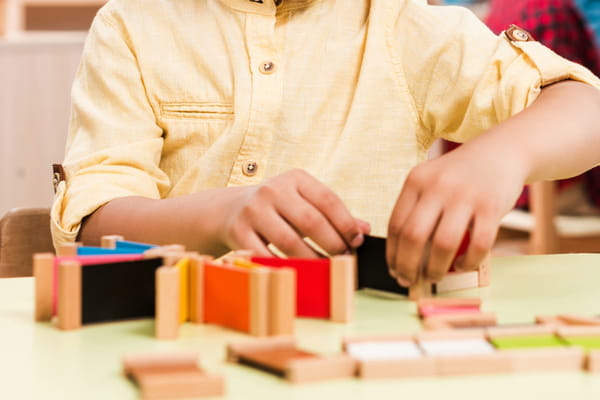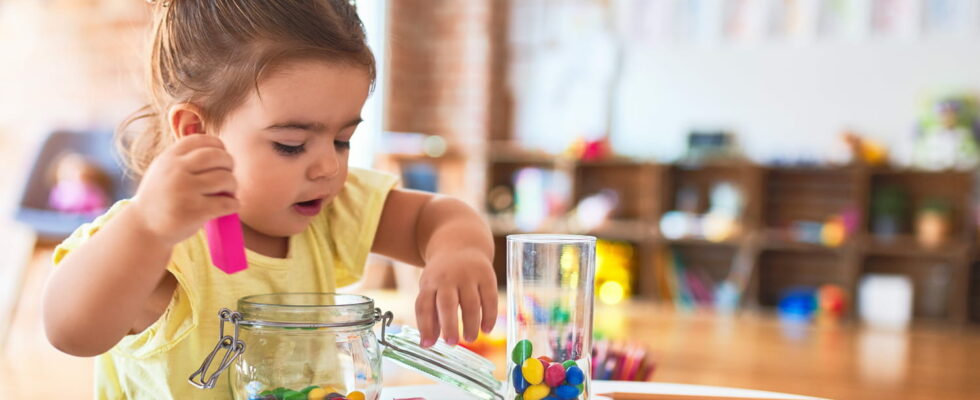The Montessori method has been introduced into many schools in recent years. However, parents are denouncing it and specialists are concerned.
Schools opting for the Montessori method represent nearly 250 elementary schools and around twenty middle schools in France. Not to mention all the establishments that are freely inspired by the concept, developed in 1907 by the Italian doctor and pedagogue Maria Montessori. These schools are distinguished by a particular pedagogy, working on the sensory, motor and cognitive skills of each child. The educational material is specific and adapted to the different stages of development. The teacher is more withdrawn and less directive than in a traditional school; he is above all an observer and advisor.
Students, for their part, have freedom in choosing what to learn. The Montessori method also encourages autonomy from a very young age. While this adaptive approach may seem to offer many advantages for the child’s development (taste for learning, independence, caring environment, etc.), it is also criticized. Waiting for the child to be interested to begin learning could cause a significant delay according to many critics.

“It is certain that a recurring problematic point of Montessoriism is the fact (…) of waiting for a child to show interest in this or that learning, before, possibly, intervening to support his work and his commitment”, notes the lecturer Ghislain Leroy, who studied the subject, with the Educational cafe. “A child who has been used to being interested in books or writing in his family environment will thus tend to go more towards activities of this type. (…) Conversely, children less familiar with reading or educational games, and more generally with anything school-related, will tend to benefit less” from this method, according to him. He assures that during his observations, while some children spontaneously turned to books, other children took care of… housework!
While researchers defend it, the Montessori method has alerted many other specialists, such as Fabienne Agnès Levine, educational psychologist, who deplores the little room left for imagination on the site. Early childhood development. Montessori schools have also been accumulating incriminating testimonies from parents in the press for months: “The children went to and from school with their hands in their pockets”, “At 8 years old, my eldest doesn’t know how to do subtractions and fumbles with additions”, “In CE1, my daughter didn’t know how to read”, “My child doesn’t know how to read but knows how to sweep the floor”, “It was a school in decline”…
Another recurring criticism: the high price, which can reach 10,000 euros per year or more and which has already pushed some disappointed parents to withdraw their children. Nadia Hamidi, president of the Association Montessori France (AMF), estimates with 20 minutes that “if schools are expensive, it is because there is no aid”. For her, we must also be careful in choosing the establishment, because schools that call themselves Montessori but only apply a perverted version of the method can turn out to be catastrophic.
“It’s not because a toy is made of wood that it is Montessori. Some are riding a commercial wave to deceive parents,” warns Nadia Hamidi. “Of course, there are abuses since the Montessori name is not protected. Today, everyone can ride the marketing wave.” Not all schools that directly or indirectly display the Montessori name are recognized by the State, far from it. They are almost all outside the contract. Only 25 have also adopted the Montessori charter and 170 are members of the association. Enough to sort through them.
